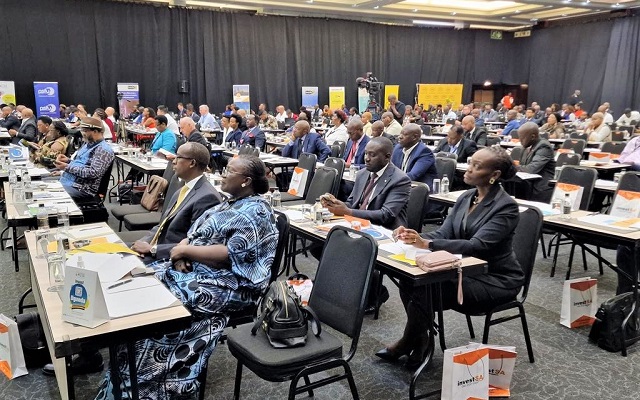
Kampala, Uganda | THE INDEPENDENT | Private sector’s decision to join the government to host the second leg of the Uganda-South Africa Summit in Kampala planned later this year shows a changing narrative in the private sector space, as companies seek business deals and contribute to the country’s growth.
The summit which is expected to attract hundreds of private-sector players with MTN Uganda as the lead, follows a similar meeting held in Johannesburg, South Africa, in February this year, all aimed at attracting Foreign Direct investment from South Africa to Uganda
MTN Uganda Chief Executive Officer, Ms. Sylvia Mulinge, said though the government has a bigger role to play in driving the country’s social-economic development, there’s a need for synergy from the private to have this dream realized.
“We, as MTN Uganda, are committed to working with the government as a partner to ensure that the lives of people in the communities we operate in are thriving.,” she said.
Mulinge said MTN’s success in Uganda to the extent of becoming the country’s largest taxpayer is a testament to Uganda being a viable investment destination and how such an investment can transform communities and the country’s economy.
MTN Uganda paid Shs184.9bn in taxes to the government last year compared to Shs150.5bn in the previous year.
Last year, the country’s private sector players through their umbrella body, Private Sector Foundation Uganda (PSFU), initiated and implemented business missions to Kenya, Tanzania, the DRC, Burundi, South Sudan, UAE, Vietnam and the USA among others seeking to trade and investment opportunities.
This is a departure from the past years in which only the government lobbied for foreign investors and markets on behalf of the private sector players.
PSFU Deputy Executive Director, Francis Kasirinya, said the private sector players are now involved in activities that were initially a reserve for government owed to the transforming economy.
“Our economy is transforming and becoming more mature, and we think that it is natural that we go that direction of seeking business ventures within and out of the country. We believe that working with the government shall bring us the best results in terms of expanding our trade opportunities here and across the world.”
Kasirinya said the private sector’s decision to organize business summits in other countries in partnership with the government is playing a big role in advocating for a better business environment in other countries.

He said the country’s private sector players need to focus on seeking partnerships with other businesses globally for investments, trade and technology to help transform local businesses.
Micro and small enterprises
The latest statistics from the Ministry of Finance, Planning and Economic Development show that Uganda’s private sector comprises about 1.1 million enterprises, dominated by micro and small enterprises with few medium and large enterprises.
Collectively, about 98.8% of the private sector comprises micro, small and medium enterprises (MSMEs), and less than one per cent are large enterprises.
The majority of the micro-enterprises employ only one person (55.7%), while within the small enterprise category, (6.5%) employ 5-9 persons. Large enterprises are operating in agro-processing, banking, and light manufacturing accounting for slow growth in manufacturing value-added GDP and employment.
Overall, the country’s private sector generates 77% of formal jobs, contributes 80 % of gross domestic product (GDP), funds 60% of all investments, employs approximately 2.5 million people and provides more than 80% of domestic government revenues, according to the Ministry of Finance, Planning and Economic Development.
However, the country’s private sector has high mortality levels, with about 90% of private enterprises operating for less than 20 years. The enterprises are also inequitably distributed regionally, with 58.9% in the central region: Kampala alone has approximately 18.9%, while Karamoja Sub-region has less than 1%.
The high mortality limits the private sector from effectively driving sustainable growth, while informality eliminates them from resource markets, government regulation and support, ultimately inhibiting their growth, expansion, and competitiveness.
Going forward
Ms. Mulinge said it is time for the private sector players including MTN Uganda to partner with the government to help in growing the economy.
“We are already doing this with the government, especially in supporting the provision of social services such as health, education and ICT infrastructure but we need to do more to create a meaningful impact on the population and the country,” she said.
 The Independent Uganda: You get the Truth we Pay the Price
The Independent Uganda: You get the Truth we Pay the Price



